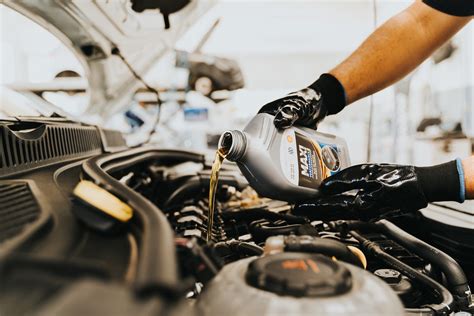Diesel Oil Change: The Key to Long-Term Reliability
Regular diesel oil changes are far more than just routine maintenance; they're the cornerstone of ensuring your diesel engine's longevity and peak performance. Ignoring this crucial aspect can lead to costly repairs, reduced fuel efficiency, and ultimately, premature engine failure. This comprehensive guide will delve into the importance of diesel oil changes, addressing common questions and providing valuable insights to keep your diesel engine running smoothly for years to come.
Why is Diesel Oil Different from Gasoline Oil?
Diesel engines operate under significantly harsher conditions than gasoline engines. They generate higher temperatures, pressures, and produce more soot and particulate matter. This necessitates the use of a heavier-duty oil with enhanced detergent properties specifically formulated to handle these demanding conditions. Gasoline engine oils lack the necessary additives to effectively clean and protect diesel engines from the build-up of contaminants. Using the wrong oil can quickly lead to engine damage.
How Often Should I Change My Diesel Oil?
The recommended oil change interval for your diesel engine will vary depending on factors such as the engine type, operating conditions, and the type of oil used. Consult your owner's manual for the manufacturer's specific recommendations. However, a general guideline is to change your diesel oil every 10,000 to 15,000 miles, or every 6 to 12 months, whichever comes first. If you frequently operate your vehicle under heavy loads or in extreme temperatures, more frequent oil changes are recommended.
What Type of Diesel Oil Should I Use?
Choosing the right diesel oil is critical. The oil's viscosity grade (e.g., 15W-40, 5W-40) and its specifications (e.g., CJ-4, CK-4) are crucial considerations. Always refer to your owner's manual for the manufacturer's recommended oil viscosity and specifications. Using the wrong oil viscosity can lead to insufficient lubrication, while using oil that doesn't meet the required specifications can compromise engine protection.
What are the consequences of using the wrong diesel oil?
Using the incorrect diesel oil can lead to several problems, including:
- Reduced engine performance: The engine may lose power, experience rough running, or fail to start easily.
- Increased fuel consumption: Improper lubrication can increase friction, leading to higher fuel consumption.
- Premature engine wear: Lack of proper lubrication accelerates wear and tear on engine components.
- Engine damage: In severe cases, using the wrong oil can lead to catastrophic engine failure, requiring costly repairs or replacement.
What Happens if I Don't Change My Diesel Oil Regularly?
Neglecting regular diesel oil changes allows contaminants, such as soot, fuel dilution, and metal particles, to accumulate within the engine. This sludge can clog oil passages, reducing lubrication and leading to increased engine wear and eventual failure. Furthermore, the degraded oil loses its lubricating properties, increasing friction and heat, potentially causing damage to critical engine components like bearings, pistons, and the turbocharger.
How Much Does a Diesel Oil Change Cost?
The cost of a diesel oil change varies depending on factors such as the type of oil used, the location of the service, and the vehicle's make and model. It’s generally more expensive than a gasoline oil change due to the higher volume of oil required and often the need for specialized equipment for some diesel engines.
Can I Change My Diesel Oil Myself?
While you can potentially change your diesel oil yourself, it's important to be aware of the potential risks and complications. Improper oil disposal is environmentally hazardous, and mistakes can lead to serious engine damage. Unless you possess the necessary expertise and tools, it's often safer and more cost-effective to have the oil change performed by a qualified mechanic.
What are the signs that I need a diesel oil change?
Several signs indicate that a diesel oil change is overdue:
- Low oil pressure warning light: This is a critical warning indicating insufficient oil pressure. Stop driving immediately.
- Dark or sludgy oil: Check your oil dipstick regularly; dark or very thick oil is a clear indication of contamination and the need for an oil change.
- Unusual engine noises: Increased noise or knocking sounds can signify insufficient lubrication.
- Reduced fuel efficiency: A significant drop in fuel economy might be a result of increased engine friction due to dirty oil.
Regular diesel oil changes are a small investment that yields significant returns in terms of engine longevity, performance, and cost savings. By following the manufacturer's recommendations and being attentive to potential warning signs, you can ensure your diesel engine continues to deliver reliable service for many years to come.

